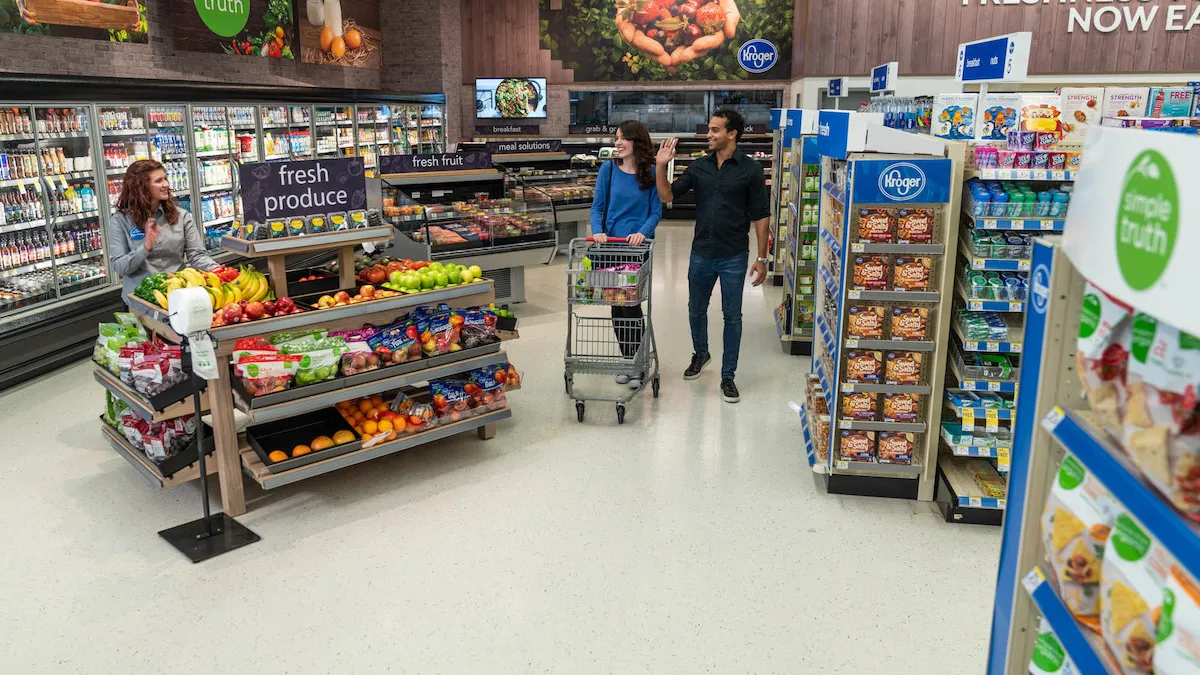Dive Brief:
- Kroger Precision Marketing (KPM), the retail chain's media advertising business, released a new sales attribution feature that aims to give brands better transparency into their ad spend across the retailer's properties, according to a press release.
- Kroger's self-service advertising platform now helps advertisers connect the dots between in-store and online campaigns with verified transactions that take place both online and in-store.
- The new feature determines the data from ads such as sponsored product listing ads and banner display ads on Kroger's websites and mobile apps using KPM data and Microsoft PromoteIQ technology. The new feature aims to help advertisers better understand campaign performance and optimize media against ad spend.
Dive Insight:
As interest grows in media placements directly offered by retailers across their own properties, this latest development from Kroger is an attempt to ensure it retains a competitive edge in an increasingly competitive space by addressing an age-old problem advertisers face — which ad, if any, led to a sale.
Attribution has continuously been a challenge in the digital marketing space. Often, advertisers can't tell if a billboard or an email was the trigger that ultimately led to a sale, causing friction in marketing departments as different channels compete for limited ad dollars. In the retail space, it's difficult to know whether an in-store shopper made a purchase after seeing an ad online or on their phone.
By attempting to give transparency into where and how ads run and tracking this against actual sales data, Kroger is aiming high in appealing to brands. This follows another advertiser-friendly move the company made last year when KPM partnered with Pinterest to enable advertisers to leverage the supermarket chain's first-party data for targeting ads on the social platform in order to track consumers from digital inspiration to purchase. Kroger captures 96% of all transactions through its loyalty card. Brands can use this data to identify the most effective audience and create connections to measure sales impact.
Traditional retailers have embraced their first-party data to push into the advertising space, understanding full well that transactional data is appealing to advertisers. Amazon's ad sales business is rapidly growing, and retail giant Walmart recently debuted its own self-service ad platform aimed to enable marketers to easily purchase search and sponsored product ads in an auction-based marketplace.














